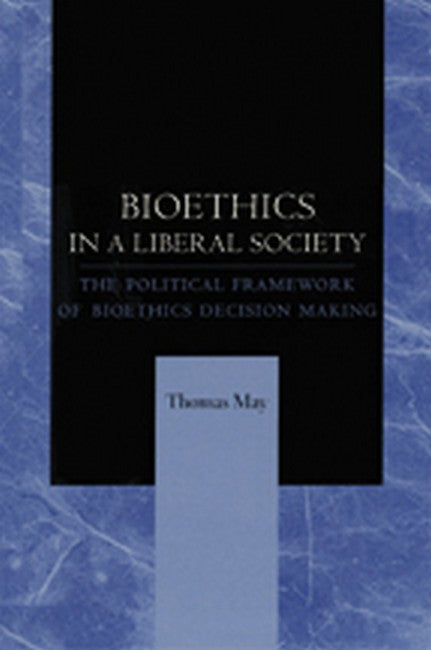Issues concerning patients' rights are at the center of bioethics, but the political basis for these rights has rarely been examined. In Bioethics in a Liberal Society: The Political Framework of Bioethics Decision Making, Thomas May offers a compelling analysis of how the political context of liberal constitutional democracy shapes the rights and obligations of both patients and health care professionals. May focuses on how a key feature of liberal societynamely, an individual's right to make independent decisionshas an impact on the most important relational facets of health care, such as patients' autonomy and professionals' rights of conscience.Although a liberal political framework protects individual judgments, May asserts that this right is based on the assumption of an individual's competency to make sound decisions. May uses case studies to examine society's approach to medical decision making when, for reasons ranging from age to severe mental disorder, a person lacks sufficient competency to make independent and fully informed choices. To protect the autonomy of these vulnerable patients, May emphasizes the need for health care ethics committees and ethics consultants to help guide the decision-making process in clinical settings. Bioethics in a Liberal Society is essential reading for all those interested in understanding how bioethics is practiced within our society.''May's book focuses on an extremely important, but much neglected and misunderstood area of bioethics, that is, the implications of a liberal constitutional political framework for bioethical decision-making.''Mark P. Aulisio, Case Western Reserve University, Center for Biomedical Ethics''May's book is a helpful overview and introduction to the political framework of bioethics decision making within a liberal society. It touches explicitly on the issues of perceived and actual lack of competence, substituted decision making, advanced directives and the important roles of ethics committees and consultants. There is no doubt that this book marks an important contribution to the literature.''Christopher Newell, Ph.D., Metapsychology

